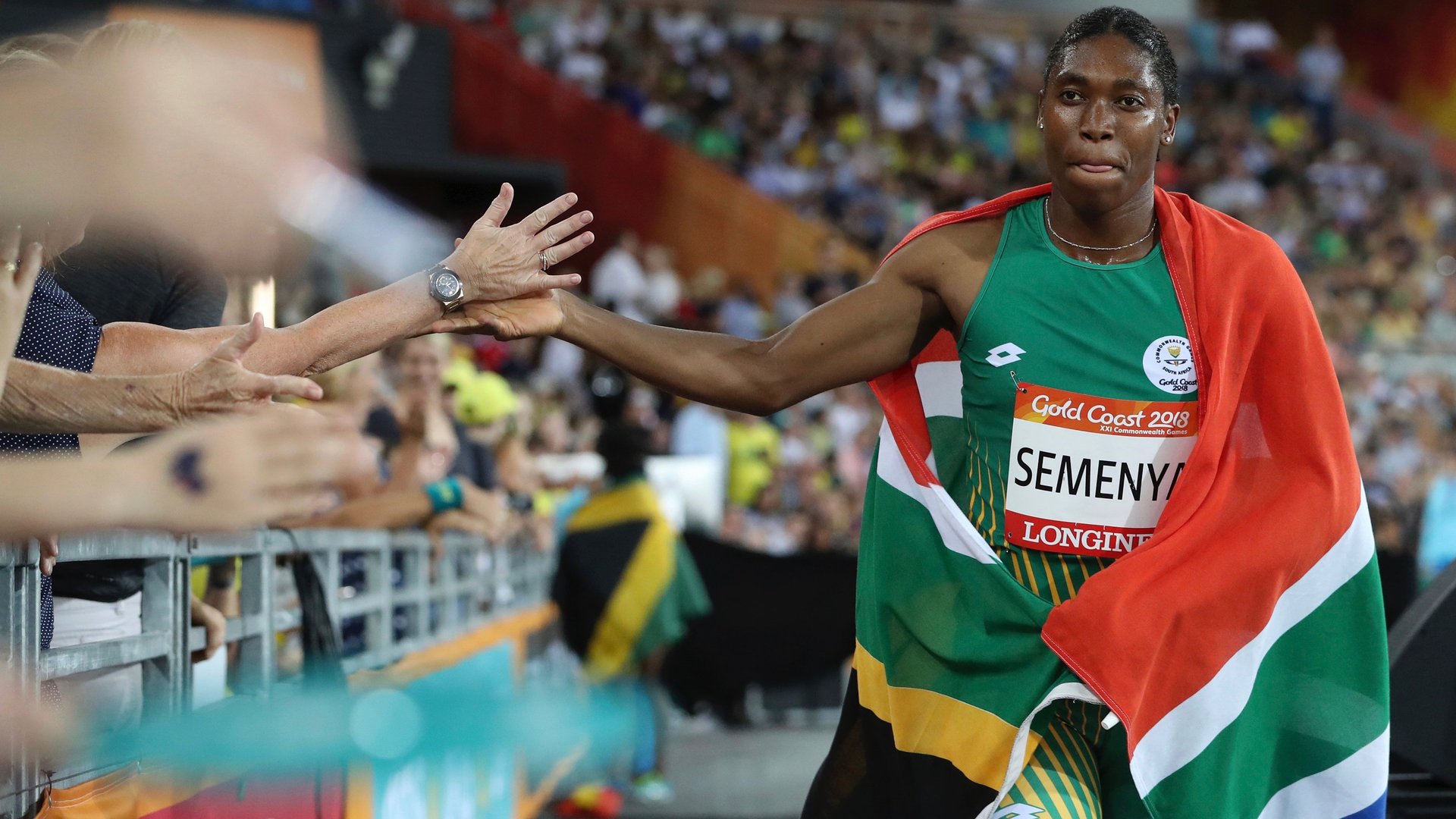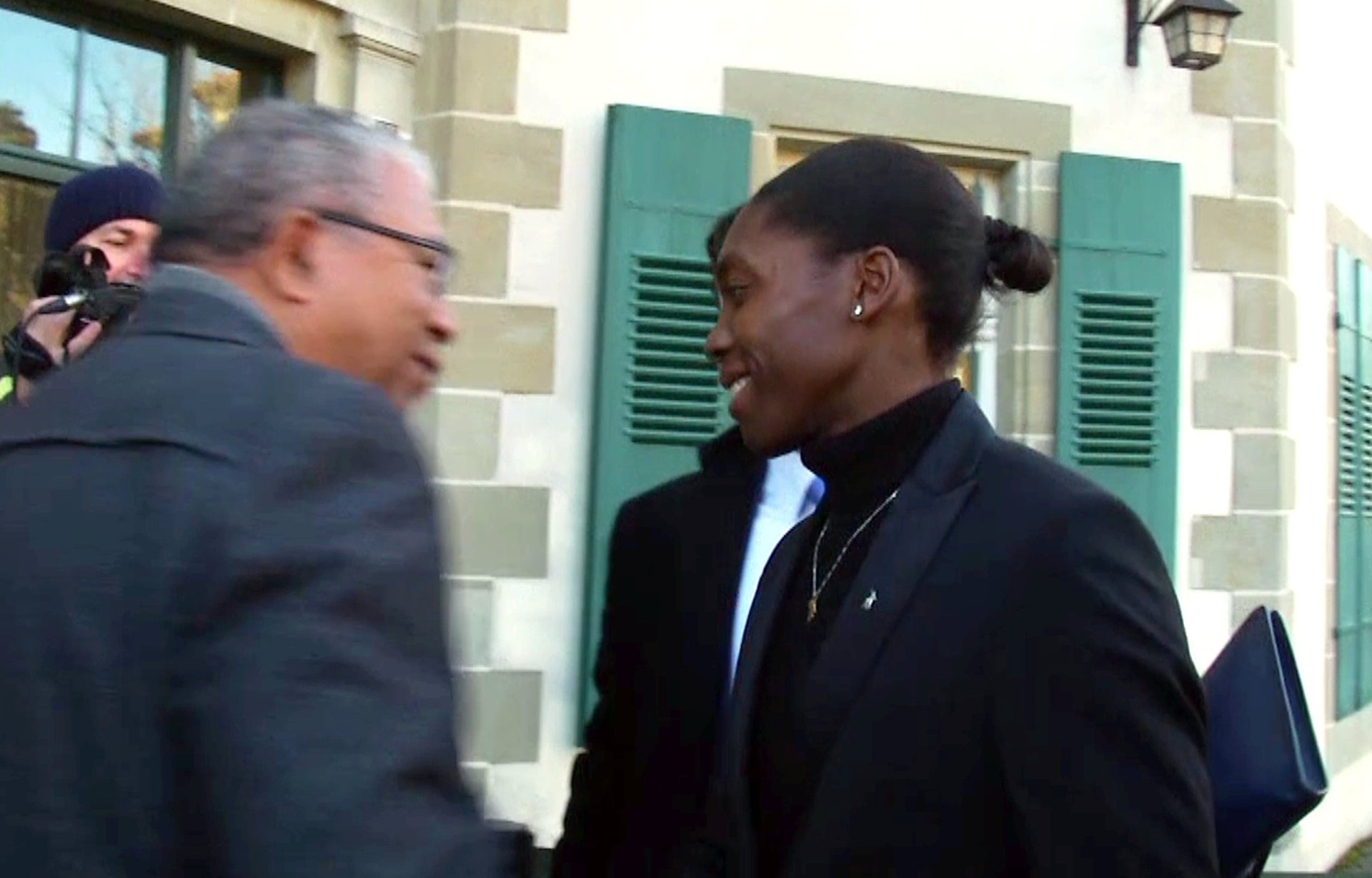Caster Semenya is forcing the sporting world—and South Africa—to rethink gender
“Our golden girl,” is the moniker Caster Semenya is known by when her wins are celebrated in South Africa, and it’s now used to rally around her as she challenges gender-based regulations that could end her career.


“Our golden girl,” is the moniker Caster Semenya is known by when her wins are celebrated in South Africa, and it’s now used to rally around her as she challenges gender-based regulations that could end her career.
The Olympic gold medallist is challenging a new set of rules by the International Association of Athletics Federations (IAAF) that would be imposed on athletes with differences of sex development (DSD). Semenya, through years of often sexist scrutiny, has become the face of what the athletics federation sees as a condition to be cured, while others see it as a genetic gift. In Lausanne, Switzerland, Semenya and her lawyers took on the federation in the Court of Arbitration for Sport, with the highly confidential five-day hearings wrapping up last week.
Earlier this month the IAAF announced that it would be implementing a new standard to force athletes who identify as female to medically drop their natural testosterone levels “into the female range in order to compete at the elite level in the female classification.”

The IAAF sees the rules as a way to ensure that the female category in sport remains a protected category. It will affect female athletes born with internalized testes or high testosterone levels. The athletics body assembled a panel of experts on gynecology endocrinology, androgyny and anti-doping, adding that they are confident that science will back their interpretation of gender.
“This standard is necessary to ensure fair competition for all women,” the IAAF said in a statement. “Indeed, without it, we risk losing the next generation of female athletes, since they will see no path to success in our sport.”
The IAAF’s stance has forced the sporting world, and South Africa, to reckon with gender. Athletes who faced sexism in their own careers, like tennis greats Martina Navratilova and Billie Jean King have publicly supported Semenya, as has has Nike’s latest advert, voiced by Serena Williams and featuring top female athletes. Experts on Semenya’s side have argued that not only are men not subjected to similar gender scrutiny, the IAAF’s understanding of gender is clearly outdated. What could have been an opportunity to challenge outdated perspectives and educate the world has turned into a paternalistic and invasive process.
As she awaits a verdict, Semenya has the backing of a country that has in many ways repeatedly failed women, particularly those of colour. On social media, prominent South Africans posted in her support and the right to control her body, while news media reports slanted toward Semenya’s unfair treatment by the international body. Even the metalworkers union, one of the country’s largest trade unions, threw its weight behind her. The South Africa government went as far as pledging 25 million rand ($1.8 million), but Semenya clarified that the she did not need the state to foot her bill.
This narrative that women’s bodies were autonomous and should be protected made South Africa sound far more progressive than the society is. South Africa’s rates of gender-based violence are terrifyingly high, and the country has a history of failing to protect black lesbians in particular.
Semenya, who is openly gay, has garnered unprecedented national support due to her extraordinary abilities and the privilege that rightfully comes with it. Yet, South African society has not been able to generalize its views on Semenya to all women.
Sign up to the Quartz Africa Weekly Brief here for news and analysis on African business, tech and innovation in your inbox